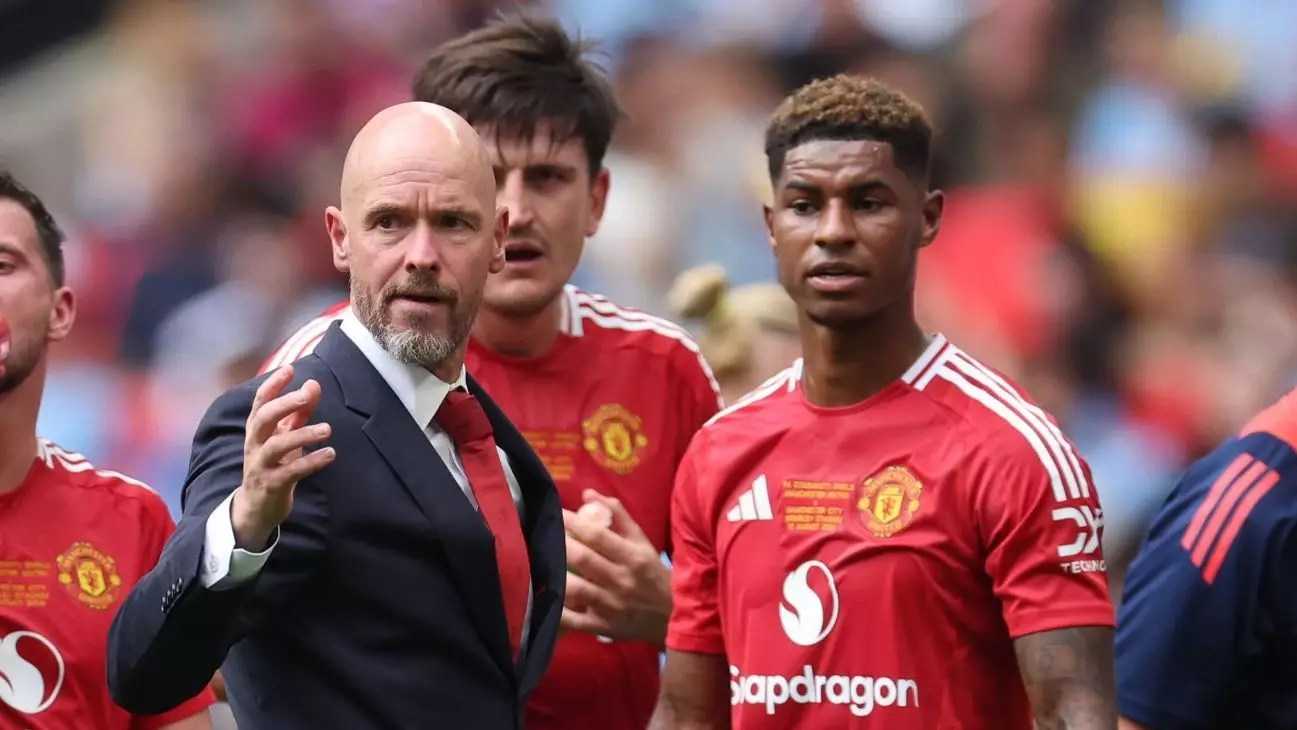In the high-stakes environment of Premier League football, every managerial decision can spark endless speculation, particularly when it involves prominent players like Marcus Rashford. Manchester United’s Erik ten Hag recently experienced this scrutiny firsthand after choosing to bench Rashford for a match against Crystal Palace, which ended in a frustrating goalless draw. Despite dominating the first half and creating numerous scoring opportunities, the team failed to capitalize, leading to questions about the reasons behind such a surprising tactical choice.
Prior to the Crystal Palace match, Rashford had showcased his scoring prowess by netting a goal against Southampton and adding two more in a rout of Barnsley. Ten Hag’s decision to rotate him out of the starting lineup in favor of Alejandro Garnacho came as a shock to many supporters and commentators. The expectation for Rashford’s continued presence on the pitch seemed almost a given after his recent form. However, in a sport where fatigue and player management are paramount, rotating players can be a prudent decision to maintain squad performance throughout the rigors of a season.
In this case, the choice did not play out favorably for Ten Hag. Garnacho’s inability to convert key chances made the benching all the more scrutinizable. Such outcomes can lead to heightened CEO pressure and media frenzy, accentuating the tension surrounding managerial choices—especially when those choices impact the performance of stars like Rashford.
The aftermath of the match saw a wave of conjecture, with pundits like Jamie Redknapp speculating that some underlying issue between Ten Hag and Rashford may have influenced the decision. However, Ten Hag sharply rebuked such inferences, emphasizing the rationale behind his approach. “It was just rotation. I am very happy with Marcus in everything he is doing,” he stated, underscoring the tactical commonality within the sport. His fiery responses reflect the frustration many managers feel when outside observers delve into personal dynamics that may not exist.
As the Renaissance of Manchester United continues under Ten Hag’s guidance, the intricacies of player management will only become more pronounced. With the club positioned towards the bottom half of the Premier League table, and upcoming fixtures against FC Twente in the Europa League and a challenging Premier League clash against Tottenham, consistency will be vital. Ten Hag’s rotation strategy must balance player fitness, performance metrics, and the necessity of securing results if he hopes to right the ship quickly.
In the modern game, scrutiny of tactical choices comes with the territory, and it is crucial for managers like Ten Hag to remain resolute and united in their vision. As fans and pundits continue to analyze every move, the focus for the club should be not solely on the individual choices but on the overarching strategy that binds them into a cohesive unit capable of challenging for top honors. While the road may get bumpy, the backing of a solid strategy and trust in player capabilities will be central to Manchester United’s success.


Leave a Reply